EVENTS AT THE FESTIVAL
WASHINGTON DC TURKISH FESTIVAL
Sunday, October 15th 2023 11am-6:30pm
3rd and 6th Street on Pennsylvannia Ave NW
LET’S GO TURKISH THIS OCTOBER! 
Live Concert By Demir Demirkan
The Turkish Festival will host an award-winning singer at the main stage this year. Demir Demirkan and his band will perform his most well-known songs live. Do not miss this free concert by one of the most prominent artists in Turkiye.
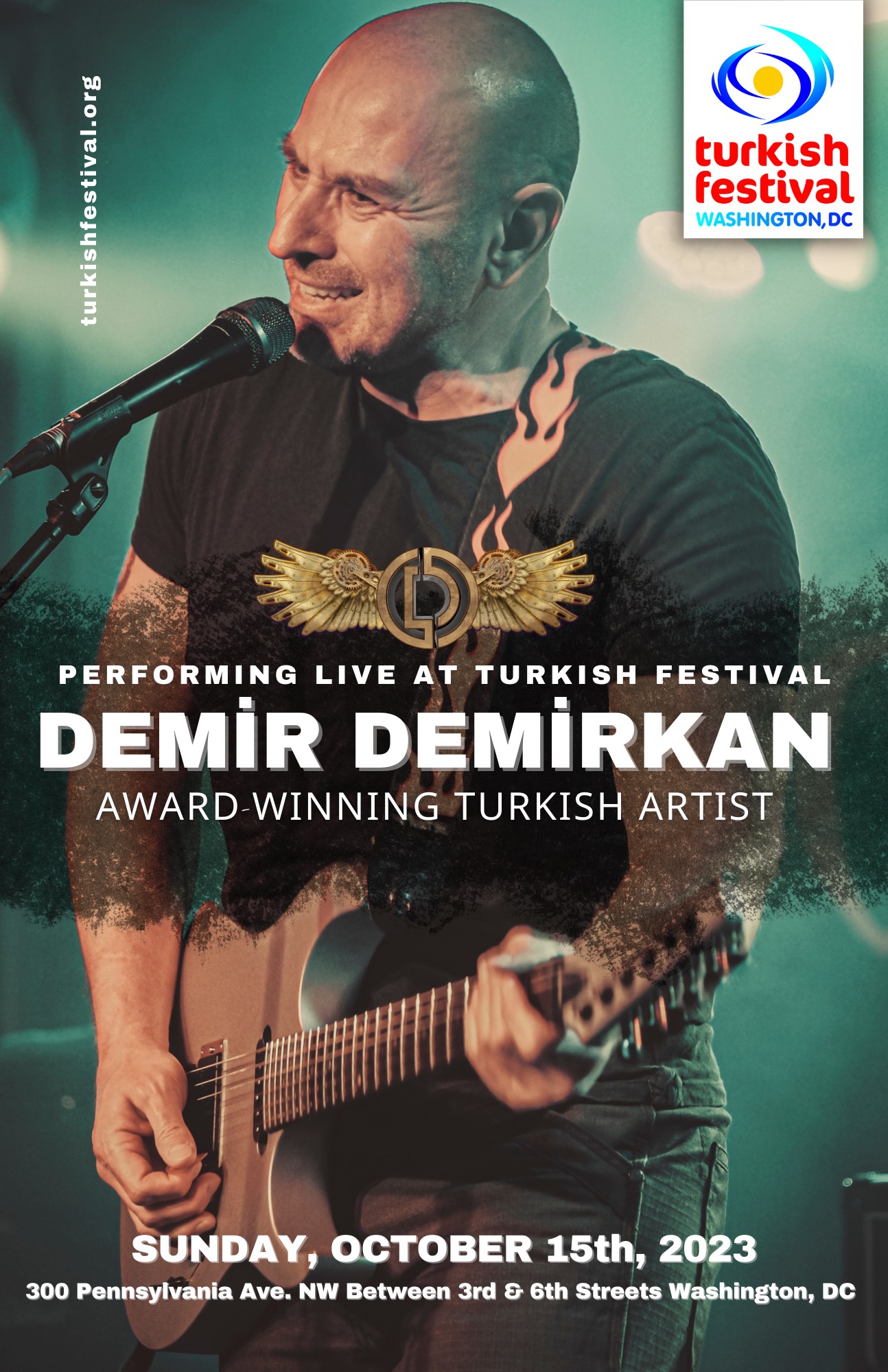
Award winning Singer/Songwriter Demir Demirkan
Demir Demirkan, a 25+ year veteran singer-songwriter/guitarist, keeps bringing out songs rooted in real lives and emotions of real people.
While building his career from ground up in Istanbul, he recorded and performed with Turkish musicians and bands mainly as a member of the Turkish Heavy Metal band The Pentagram a.k.a. Mezarkabul. Internationally, he recorded and performed with world-renowned names like Mike Stern, Al Di Meola, Dave Weckl, Trilok Gurtu, Omar Hakim and Phil Galdston to name a few.
His audience’s relationship with Demir solidified through the years with love, sincerity, and a confidence in him that he delivers albums and performances with authenticity and uncompromising creativity.
Beginning at age 19, Demir Demirkan has produced and released close to 50 solo and collaborative albums and singles ranging from blues, rock, metal to film and TV series soundtracks composed for symphony orchestras, choirs and Anatolian instruments.
TURKISH COFFEE AND TEA EXPERIENCE
Enjoy Turkish Coffee and Have your fortune-telling
At our Turkish Coffee Tent, you can enjoy a cup of Turkish coffee in different flavors and have your coffee fortune told.
Turkish coffee reading, also known as Tasseography or Tasseomancy, is a traditional method of fortune-telling or divination that is popular in Turkiye as well as many Middle Eastern and Balkan cultures. This practice involves the interpretation of patterns, symbols, and shapes formed by the coffee grounds left at the bottom of a cup after drinking Turkish coffee.
While Turkish coffee reading may not have a scientific basis, it remains a cherished and culturally significant practice in Turkiye, adding a sense of mystique and fun to gatherings and special occasions.
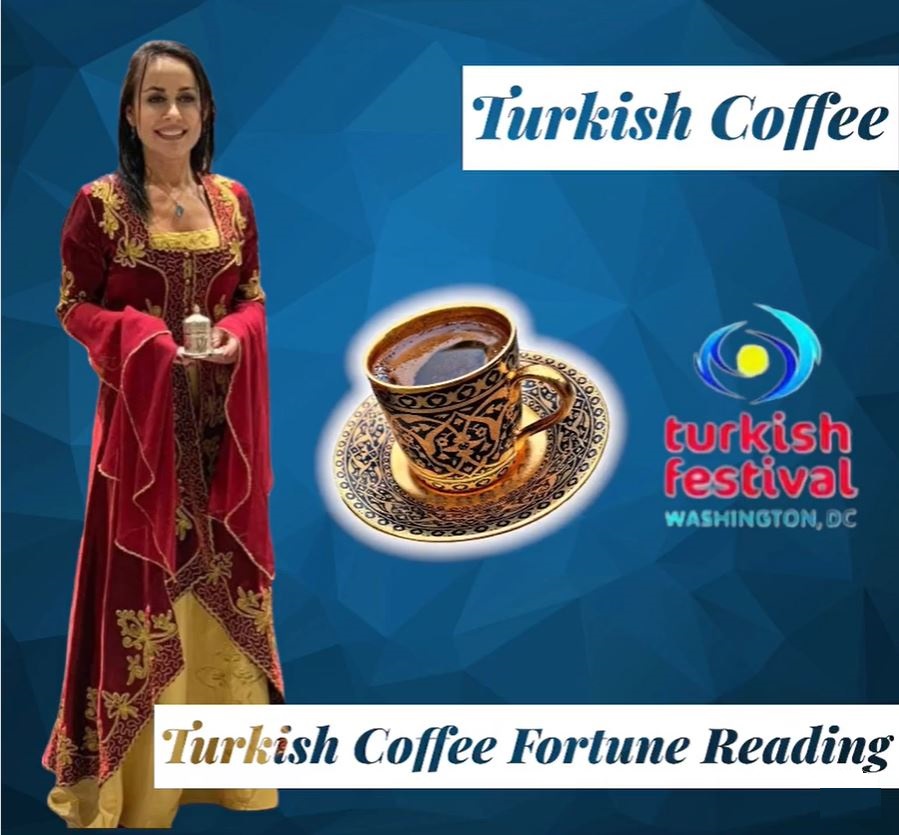
Turkish Tea Tent Welcomes Tea Lovers
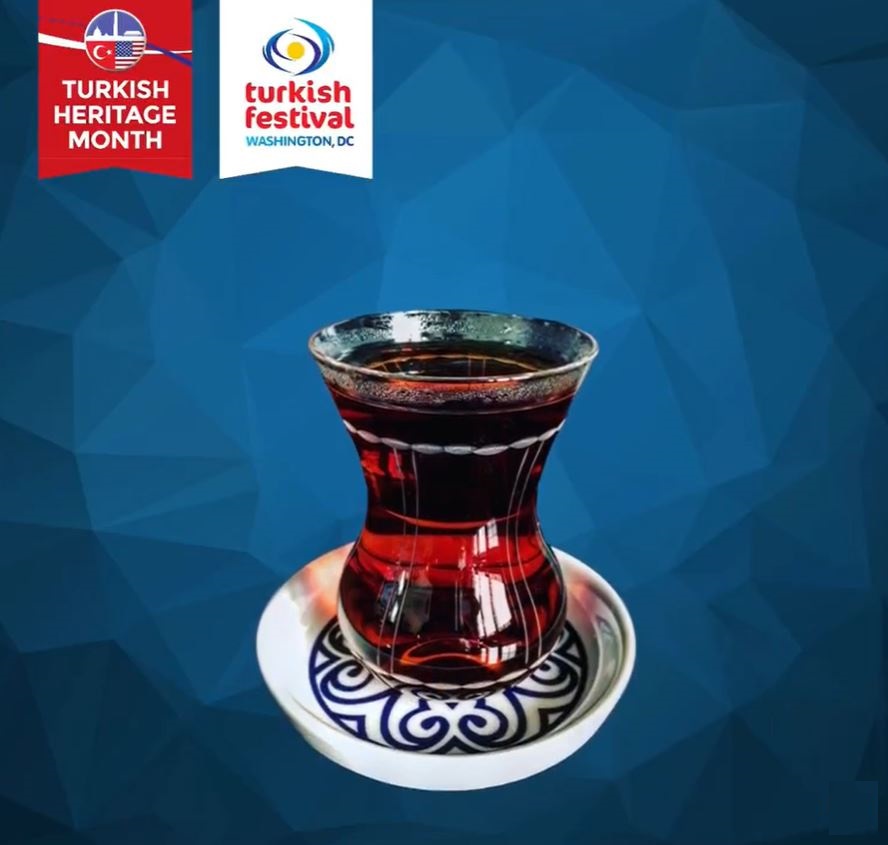
Tea drinking culture in Turkiye is deeply rooted in the country’s history and plays a significant role in daily life. Turkish tea, known as “çay” (pronounced “chai”), is an integral part of Turkish hospitality and social interaction. Turkish people are known for their warm hospitality, and offering tea to guests is a common way to welcome them into their homes. When you visit someone in Turkiye, it’s customary to be offered a glass of tea, and it’s considered impolite to decline.
KIDS TENT FOR LITTLE ONES
The Turkish Festival is gearing up to make your kids’ day unforgettable as well. Bring your little ones to the Kids Tent and let the fun begin!
Here’s a sneak peek of the exciting activities awaiting them:
🐼 Mosaic Making
🦁 Coloring
🐶 Crafts
🐸 Music & Dance
😺 Face Painting
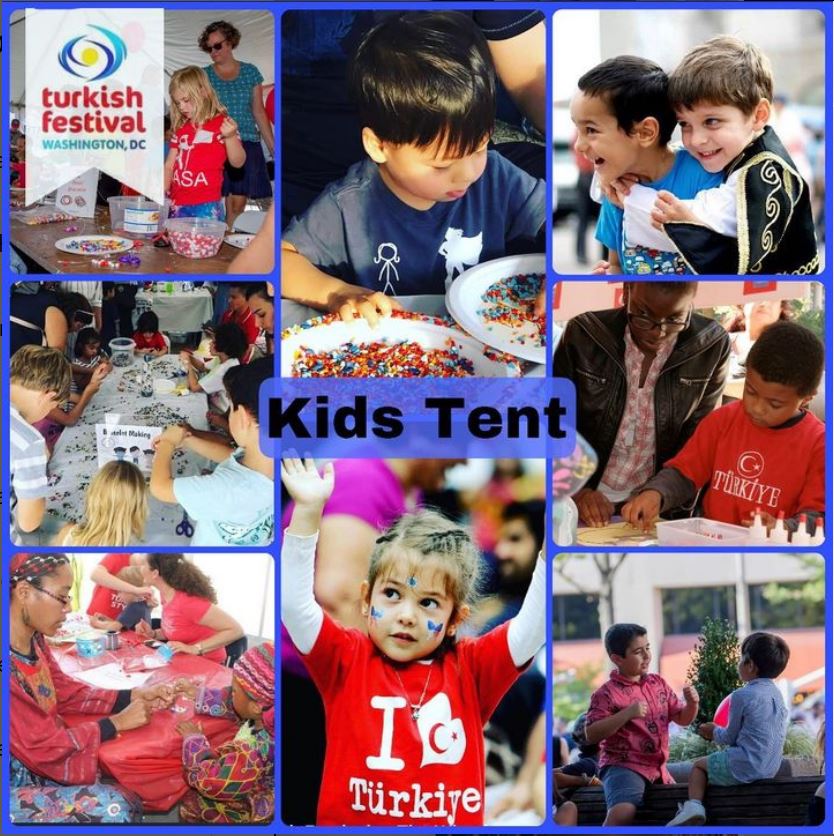
TURKISH CULINARY & GRAND BAZAAR
The Turkish Festival will offer a day of free activities including authentic Turkish cuisine, fashion, folk dances and live music. More than 40 arts and crafts vendors will showcase jewelry and hand-woven textiles at the Turkish “Grand Bazaar”.
Selected as the “Best Festival” and “Best Cultural Festival” by Washington City Paper readers in the past 12 years, this premier event draws tens of thousands of Washingtonians to the streets to experience Turkiye’s rich cultural history, its culinary delights, and a variety of live Turkish music and folk dance performances.
The festival goers will also enjoy delicious Turkish food and drinks, while browsing the Grand Bazaar to hunt for jewelry and fashion deals.
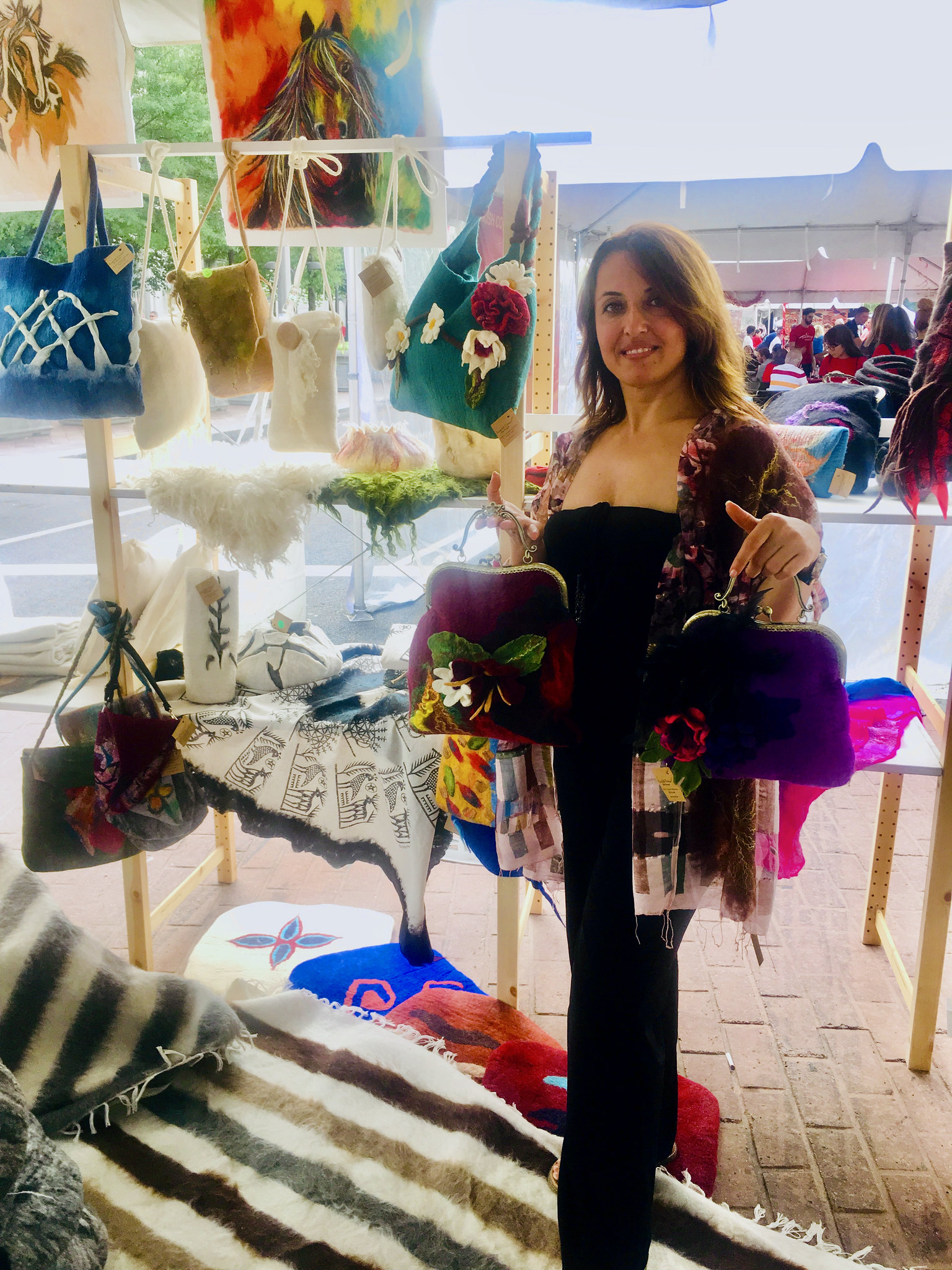
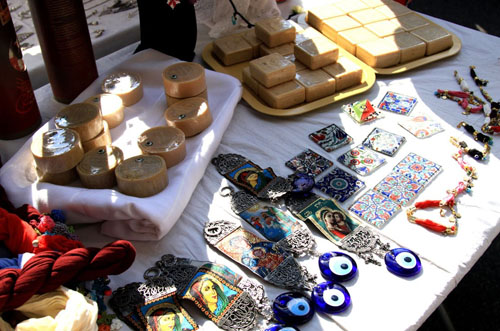
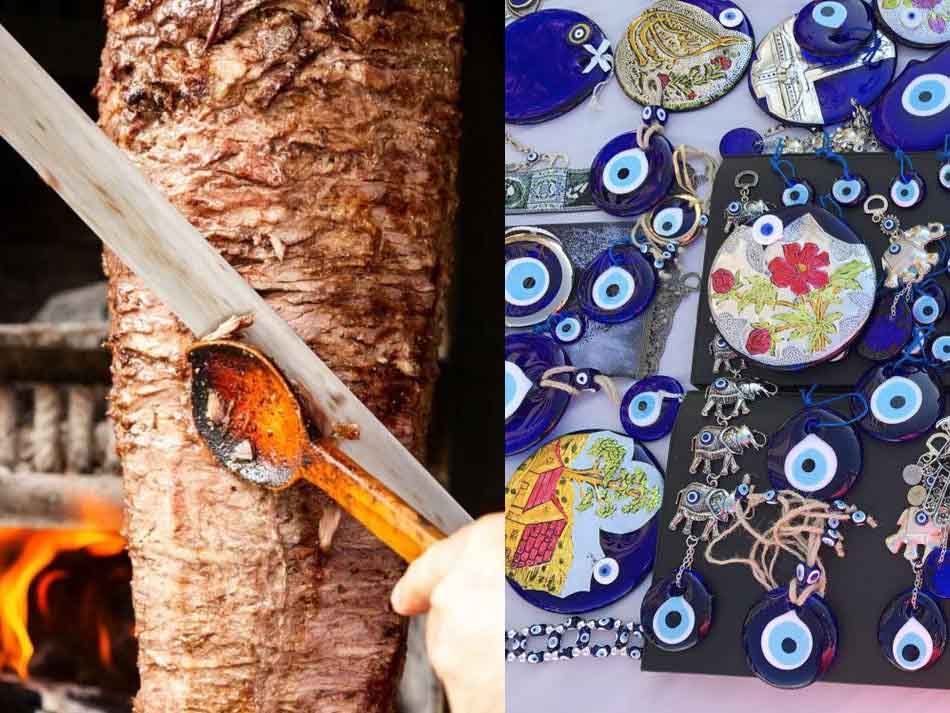
UNFORGETTABLE EXHIBITIONS
Celebrating 100th Anniversary of the Turkish Republic
An exclusive coffee art exhibition of “100 Artwork of Atatürk” will be on display at the Turkish Festival. Hand painted by one of İstanbul’s most talented artists, Hasan Kale honors the founding father Mustafa Kemal Atatürk and the 100th anniversary of the Turkish Republic through this exclusive exhibit.
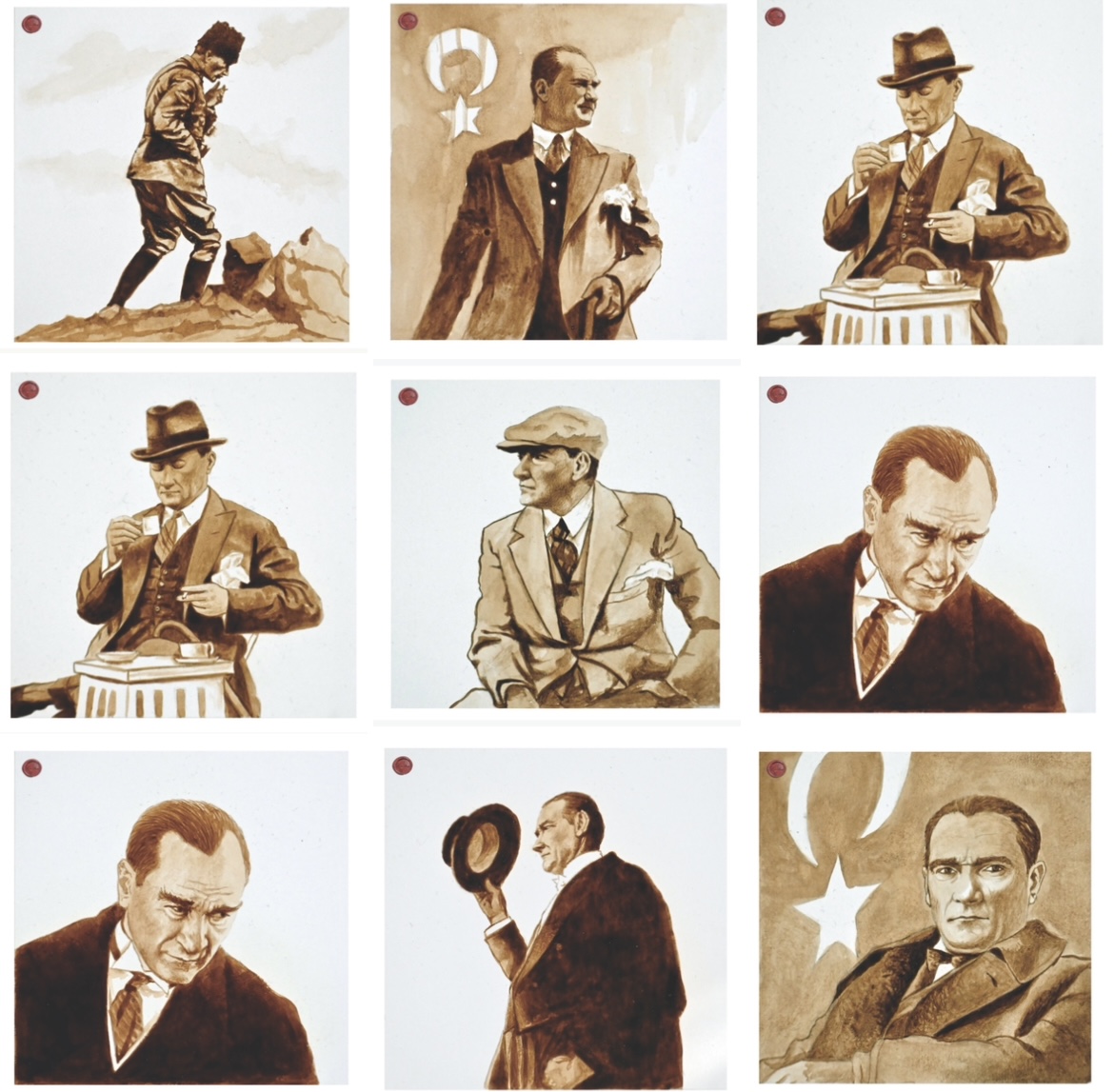
About the Artist: “Microangelo” Hasan Kale
A world-renowned; master of micro art Hasan Kale turns tiny objects into miniscule paintings. Known as “Turkey’s Microangelo”, Kale’s exquisitely detailed paintings include pumpkin seeds, coffee beans, rice grains, chickpeas and tiny discarded items such as matchsticks to bottle caps.
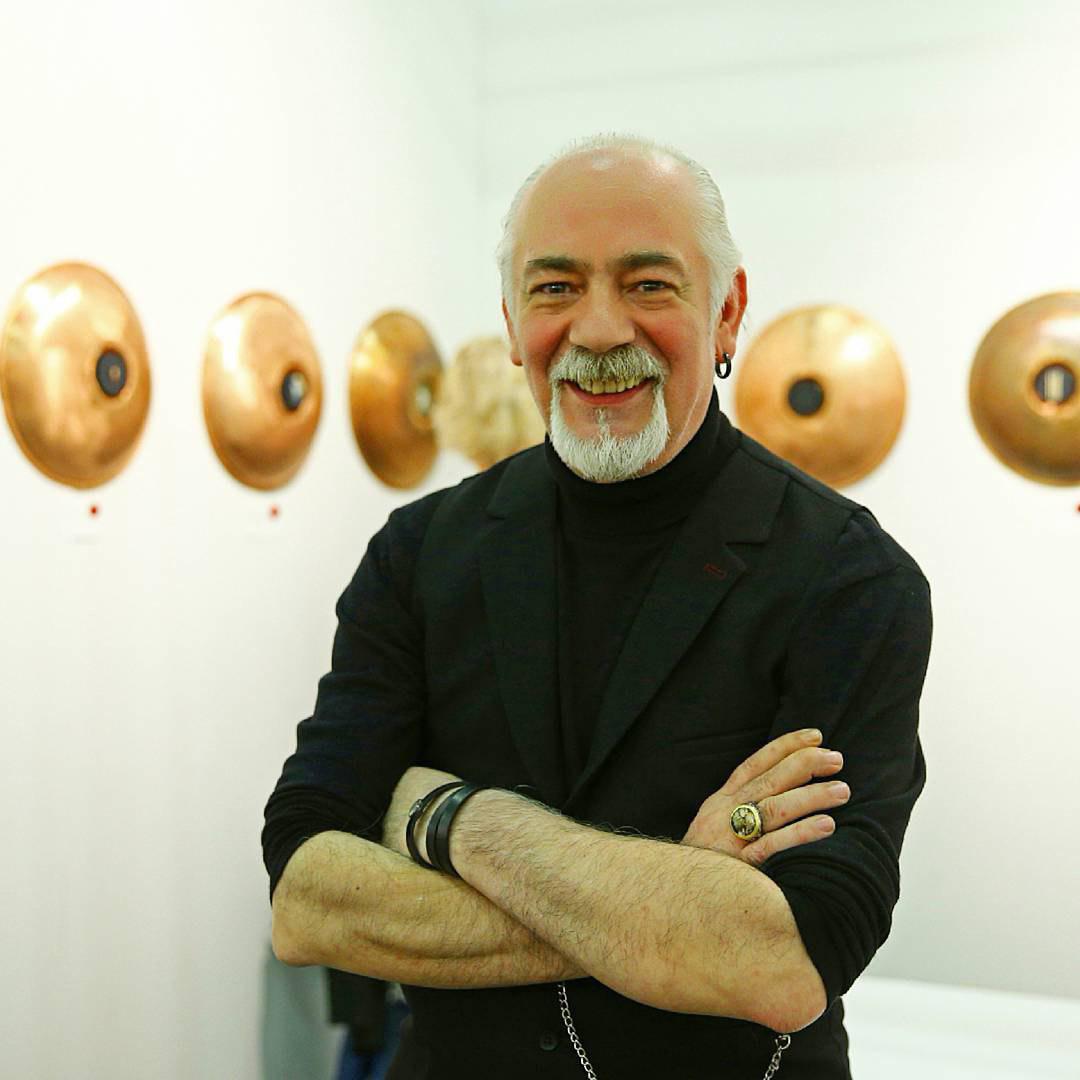
A special photo exhibit by Resul Celik
The Turkish Festival will host a special photo exhibition this year. Well-known Turkish artist Resul Celik is connecting people through photography. Born in Rize Çayeli in 1972, Resul Çelik made great contributions to the promotion of Turkey with over two hundred and fifty photography exhibitions he opened in various cities of Turkey. Çelik focuses mostly on landscapes, historical places and portraits.
Visit Celik’s exhibition and get a chance to purchase one of his master pieces at the Turkish Festival.
See examples at https://www.resulcelik.com.tr/
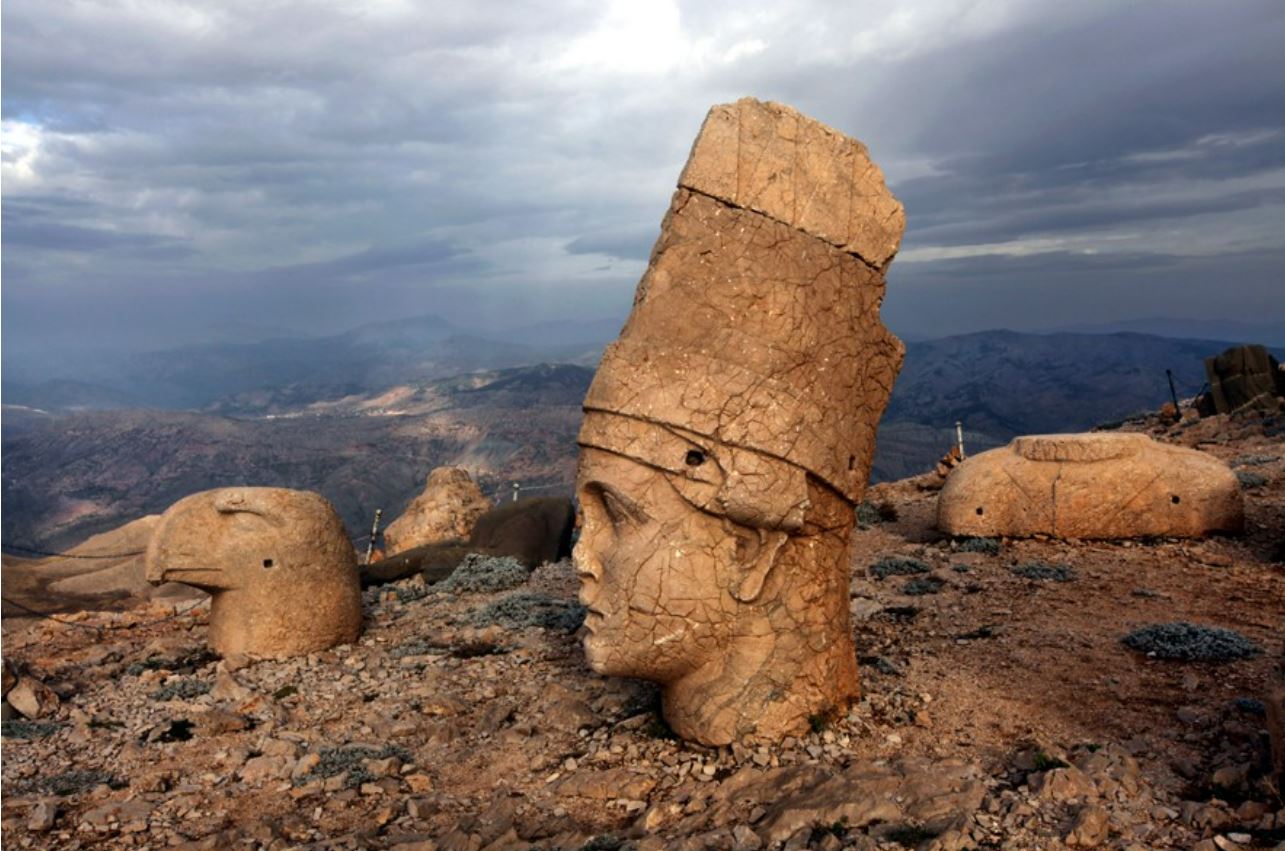
Mount Nemrut, Türkiye – Credit: Photo by Resul Celik
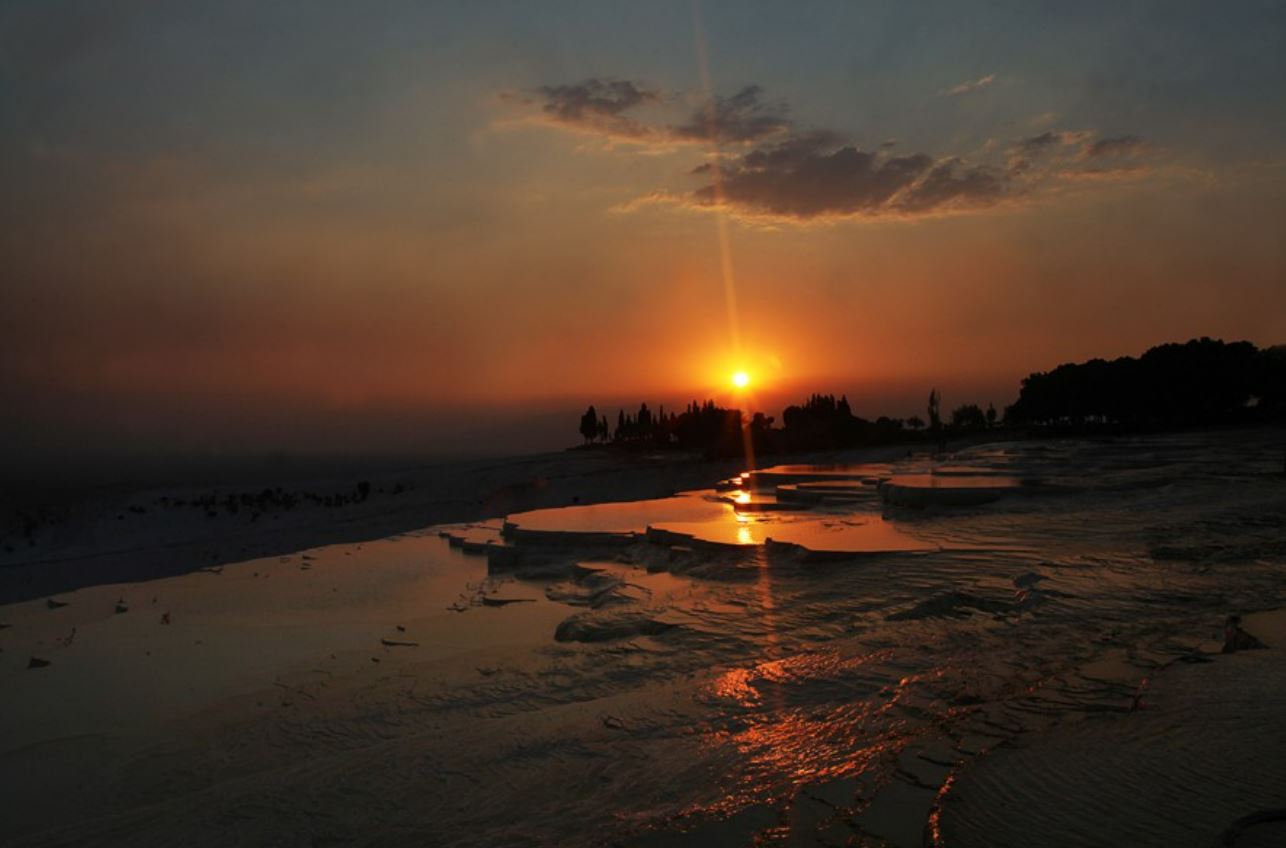
Pamukkale, Türkiye – Credit: Photo by Resul Celik
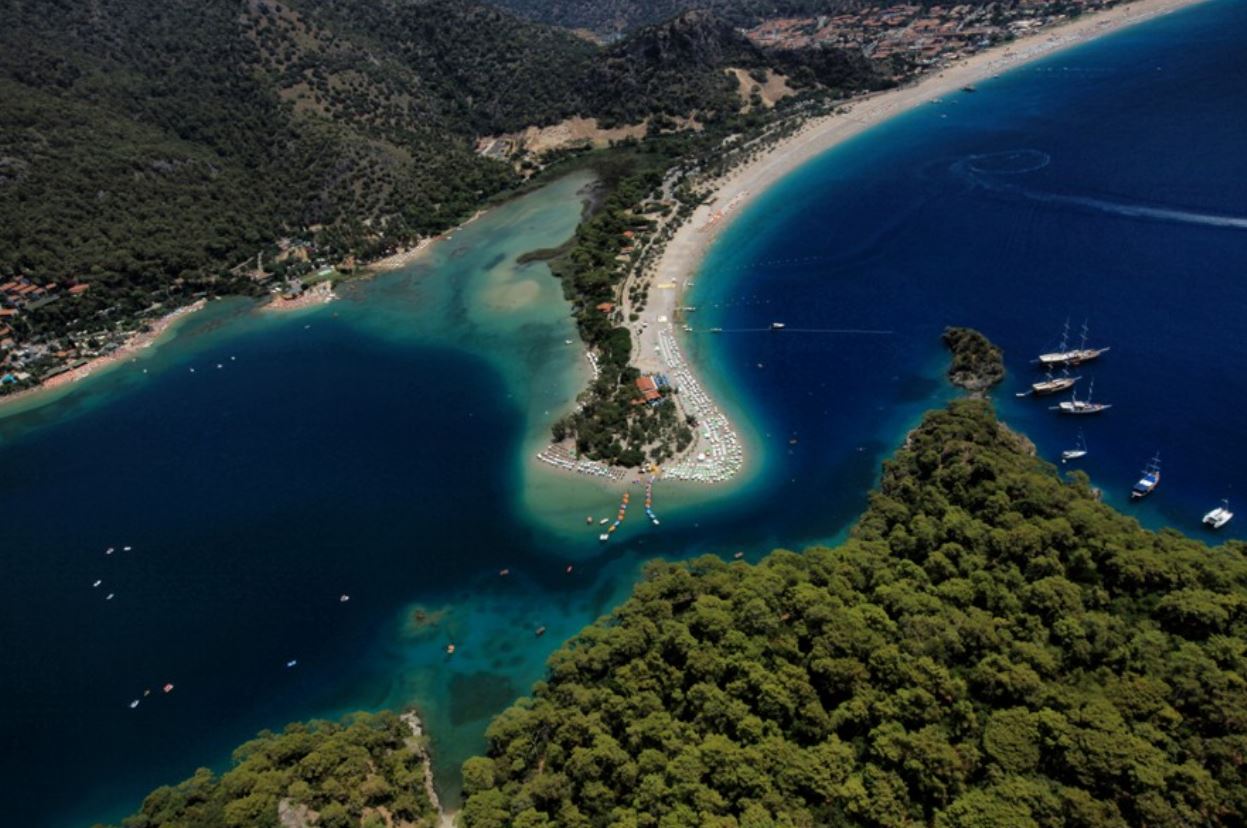
Fethiye Ölü Deniz, Türkiye – Credit: Photo by Resul Celik
Art of Copper: 10-Thousand Years in Anatolia
The Turkish Festival brings one of the oldest craftsmanship in the history of art to Washington, DC area: The Civilization of Copper.
It is commonly known that the discovery and use of copper for making certain tools and weapons date back to 10 thousand years in Anatolia. The process of smoothening the metal by heating and making it available for processing – also known as “tavlama” – was first realized in Turkiye, Anatolia.
With the Great Seljuk Empire, there has been a significant progress in the Islamic metal arts and cutting edge cup making and processing techniques were applied, as it Is the case for all the art branches of Seljuk Empire.
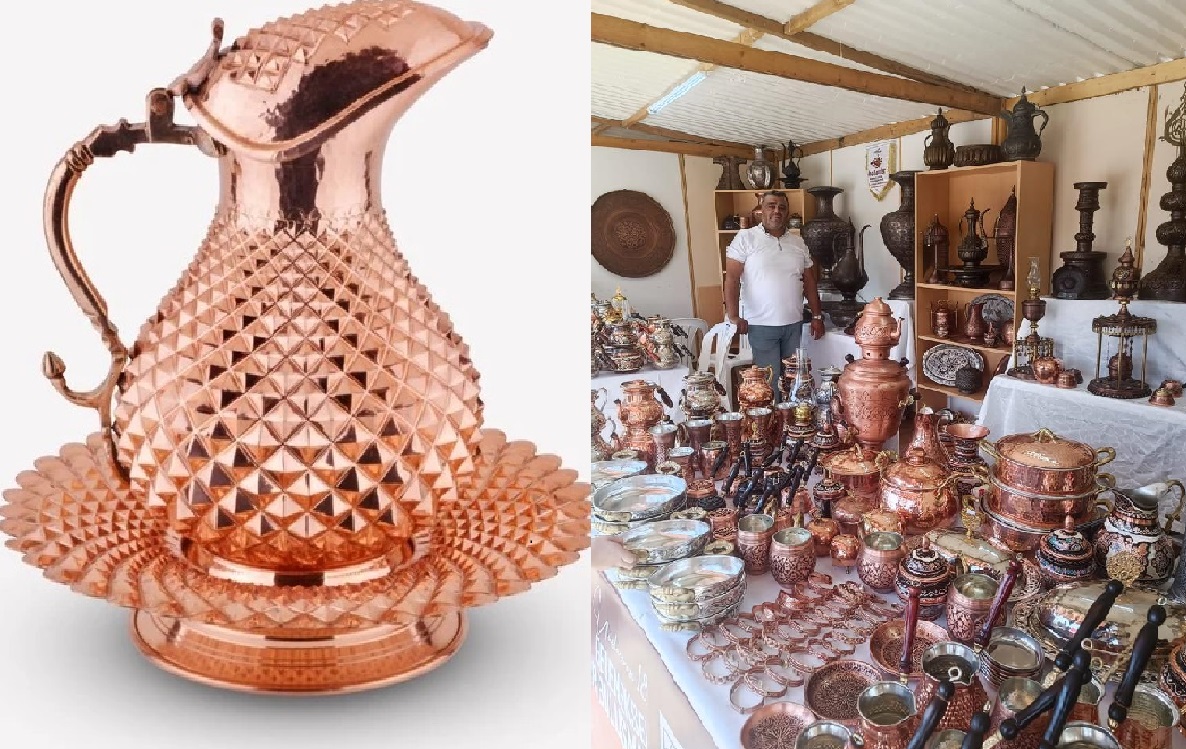
Right after the foundation of the Ottoman Empire, the copper mines in both Anatolia and the Balkans were intensively operated, as a result of which the mining activities climaxed during the Ottoman Empire era. As copper was used for the war Industry, royal mint and for the purpose of meeting the requirements In the social life In the Ottoman Empire, the mineral deposit were continuously operated until the middle of the 19th century. Copper products which were commonly used during the Ottoman Empire period are the results of an extraordinary workmanship.
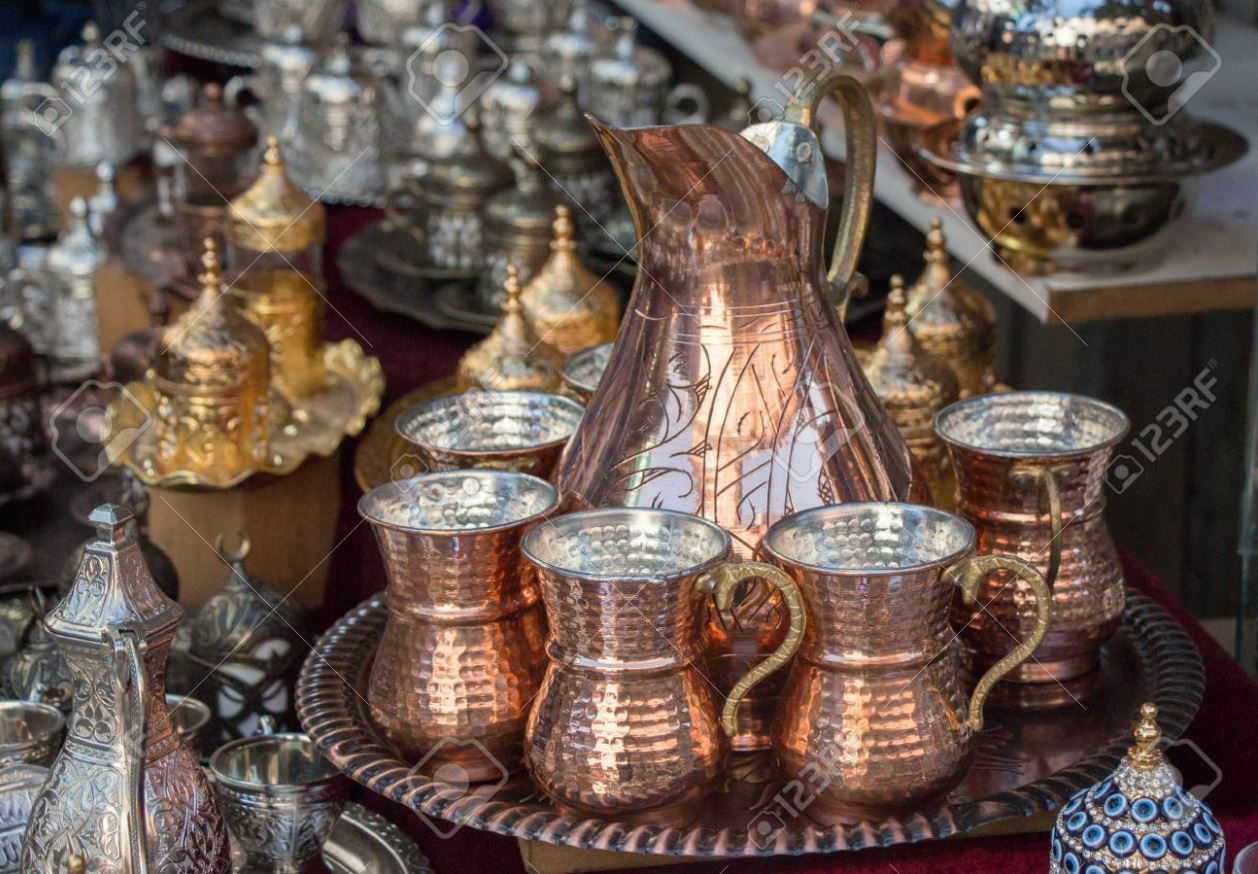
Tin is a metal used for casting the metal objects In order to prevent corrosion. Due to the oxidation and poisonous effect of the metal cups used without being tinned, tinning was commonly performed In the period when copper was used as kitchen equipment.
The common characteristic of the copper products produced In the Ottoman era which stand out with the variety of cup types, rich shapes, unique ornaments and the diversity of the materials used and the techniques implemented is the versatility shaped by the different cultures living In a large geographic region.
Turkish Ceramic Art: Çini Exhibit by Hasan Bilgin
The history of Turkish Ceramic reaches back thousands of years, making Turkey the ‘country of ceramics’. There are two types of ceramics, named after their place of production; the most famous ones are Kutahya and Iznik ceramics.
The word “çini” or “cini” is somewhat synonymous with ceramic in modern Turkish, but it strictly means Iznik pottery in some contexts. However historically there was a difference in usage. Iznik pottery, or Iznik ware, is a decorated ceramic that was produced from the last quarter of the 15th century until the end of the 17th century.
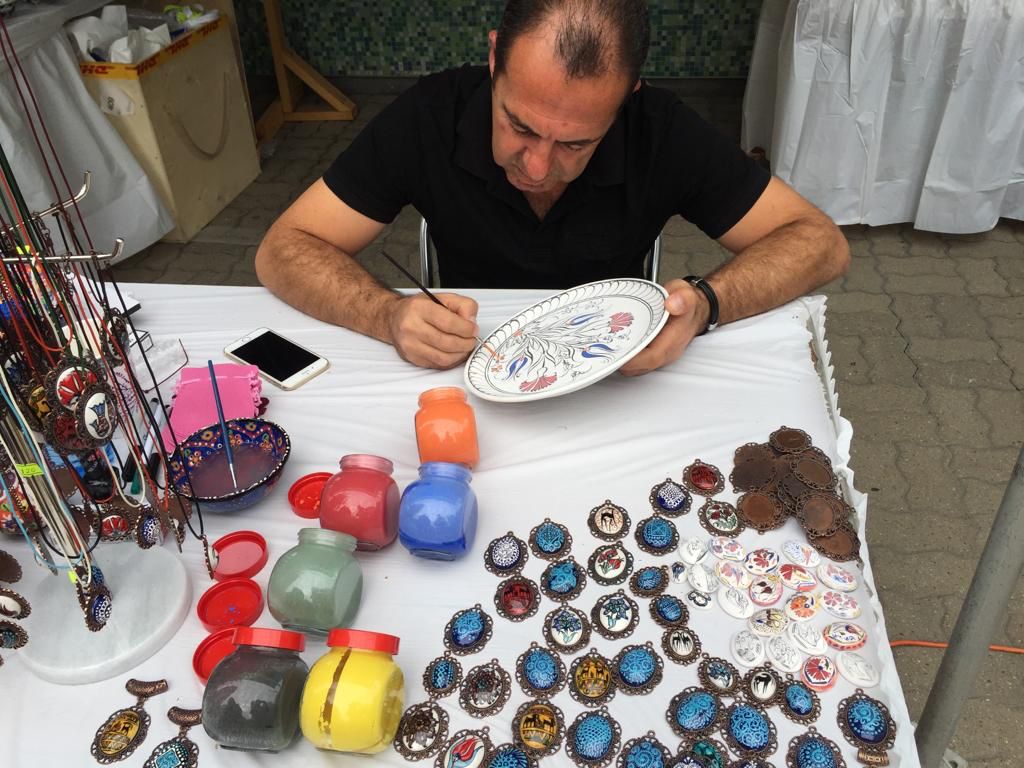
The most brilliant period of Ottoman cini was in the 16th century. Due to the use of Iznik cini in architectural works constructed during this period, the demand for Iznik wares was high. Following the stagnation and decline of the Ottoman Empire, the city of Kutahya became new production center for the Turkish cini. However in the recent decades, Iznik cini saw a revival. Currently there is a great interest in the art of Iznik pottery or “çinicilik” from the people, academics and the government.
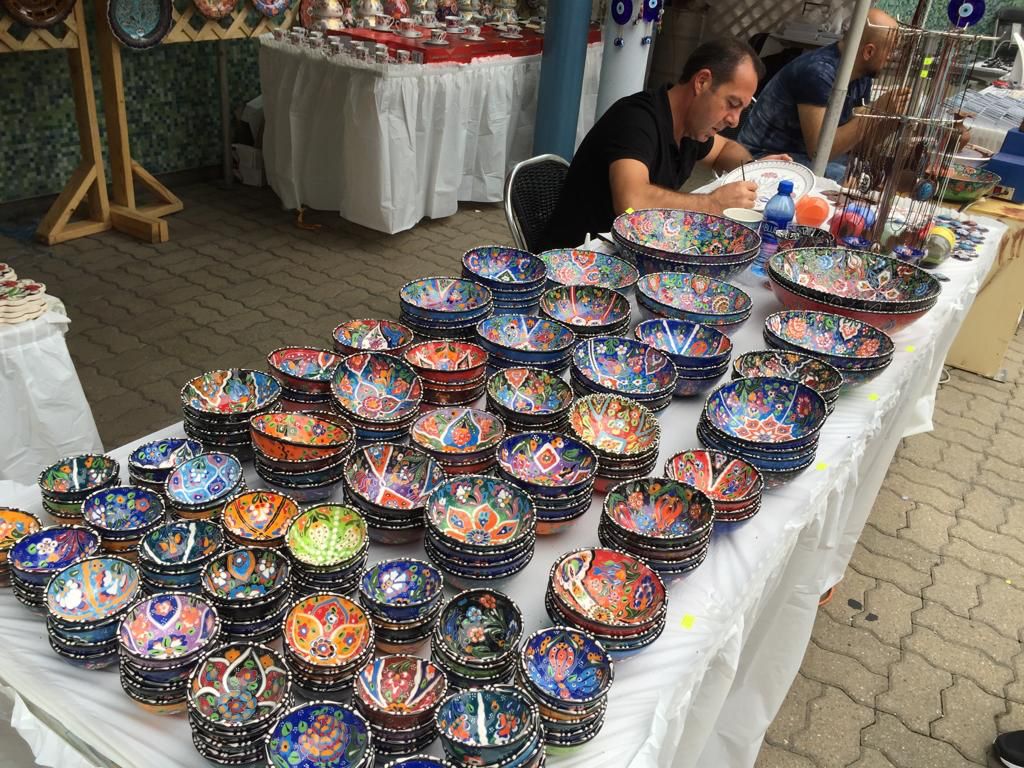
At the Turkish Festival, the Çini master Hasan Bilgin will showcase his finest Turkish ceramic pieces and will offer affordable deals to the visitors who would like to buy one of these hand-made Çinis.
